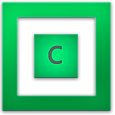Howdy, Stranger!
It looks like you're new here. If you want to get involved, click one of these buttons!
covecube.com
community.covecube.com
blog.covecube.com
wiki.covecube.com
bitflock.com
stablebit.com
Categories
Poll
No poll attached to this discussion.In order to better support our growing community we've set up a new more powerful forum.
The new forum is at: http://community.covecube.com
The new forum is running IP.Board and will be our primary forum from now on.
This forum is being retired, but will remain online indefinitely in order to preserve its contents. This forum is now read only.
Thank you,
Critical: BSOD when accessing DP over a network share
Hi there,
I am experiencing lots of BSOD (message BAD_POOL_CALLER) when using a pooled drive over the network.
My setup:
+ Drivepool installed on: Win Server 2012 64, 16GB mem, core i7
+ Pool created with:
- Archive disks: 3 volumes of 2.6TB located on 3 HDD of 3TB
- Feeder disk: 1 volume on 1 HDD of 750GB
+ Pool shared over the network:
- Mounted drive letter directly;
- Some folders in the drive.
+ Network going through gigabit interfaces and a switch
+ Client PC connecting to the shared pool using Windows 8 Pro 64
When does the BSOD happen:
+ Install TreeSizeFree
+ Analyse a shared pool with a lot of content: 7334 folders, 25 361 files, 4.21 TB
I cannot upload the memory_dump, it is 1GB...
Checked the drivepool logs, nothing appears at the time of the BSOD.
Any help appreciated, this issue is critical to me, making all of my config unworkable...
This discussion has been closed.

 Download your copy of the StableBit DrivePool, StableBit Scanner or StableBit CloudDrive here
Download your copy of the StableBit DrivePool, StableBit Scanner or StableBit CloudDrive here Follow Covecube on Twitter.
Follow Covecube on Twitter.
Comments
Nothing to do with DP here, just that I activated the share option "Enable access-based enumeration" for the DP share.
Deactivating it brings the performance at the same level as for direct disk shares.
Redid some tests, before and after removing that option on the share (before and after a server reboot), and unable to trigger the BSOD anymore.
So the mystery remains... perhaps my client machine is caching some data that are required... I don't know.
Tell me if you have ideas of something I could try.
I will get back to you if that happens again.
http://support.microsoft.com/kb/2709568
Still experiencing the BSOD!
So I am good for a complete re-install of my system.
I think I will deactivate MS updates on my server main OS.
Use it for AD DC and file sharing, that's it.
Then install another OS as VM that will be used for other things like SQL server.
What a pity MS...